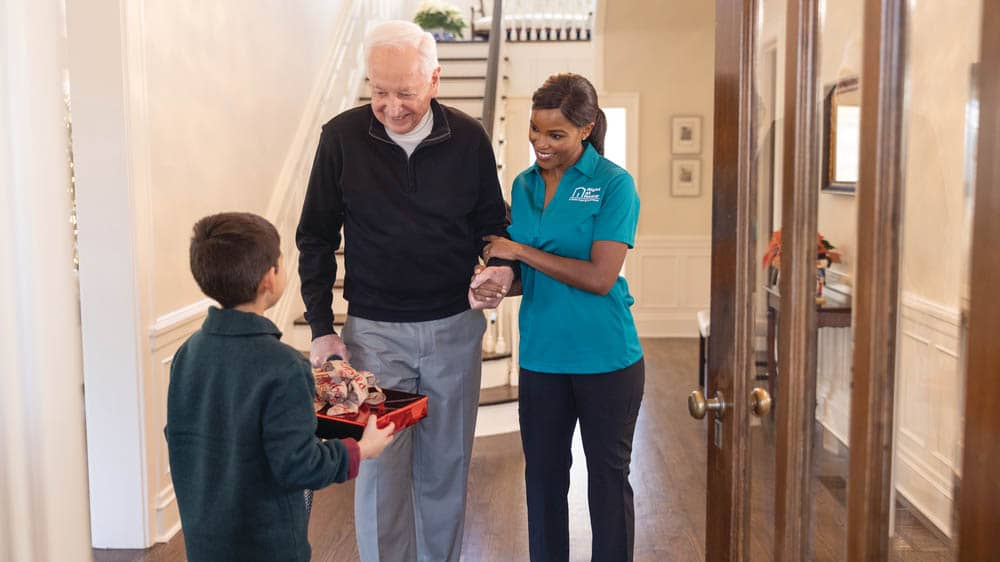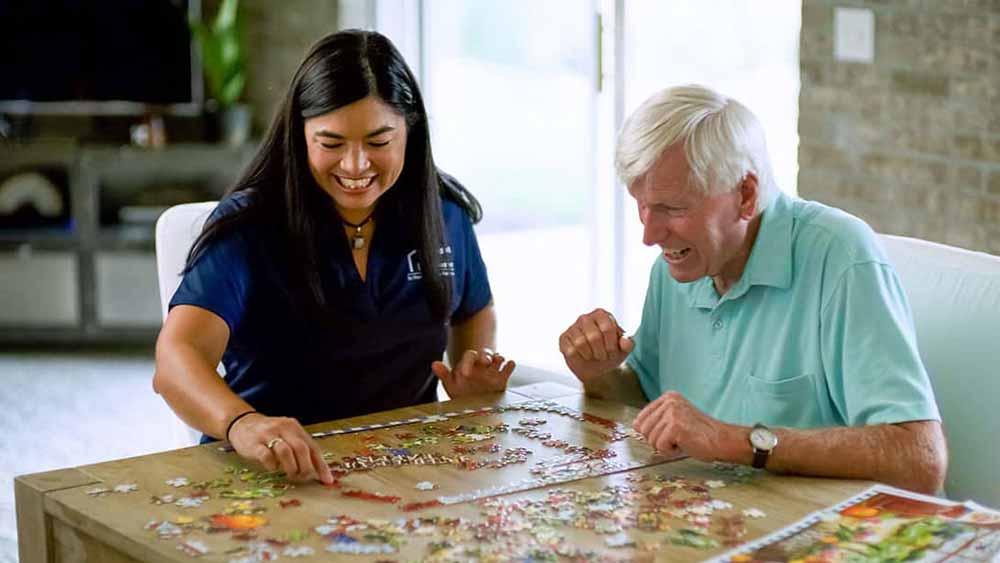

Caring for Someone With Dementia? How To Reduce Their Stress and Yours
It can be considered a great privilege as an adult to return the same loving care and comfort to an aging parent in the same way they cared for you as you grew up. You can find reward in the smiles, laughter, thanks, and precious time together. But if you are a caregiver for a loved one with dementia, you may find it to be quite stressful as the condition worsens. And you can be wrought with concern about the stress your loved one is also experiencing. If you are in this situation, here are some tips to consider to help manage the stress for you and your loved one.
First Things First: Understand What You’re Dealing With
Knowledge is power, as the saying goes. The more you know about the type of dementia your loved one has and its unique characteristics, the better you’ll be at managing their stress. According to the AARP, these are the five most common types of dementia:
- Alzheimer’s disease is the most common type of dementia and is most often diagnosed in people age 65 and older.
- Lewy body dementia is caused by Lewy body disease and causes a range of symptoms, some of which are shared by Alzheimer’s disease and some by Parkinson’s disease.
- Vascular dementia is caused by strokes or other problems with blood flow to the brain.
- Frontotemporal dementia often occurs in people between the ages of 45 and 64 and results in nerve cell damage to the frontal and temporal lobes of the brain.
- Mixed dementia means that a person has symptoms from more than a single type of dementia.
Your loved one’s health care provider will likely offer several informational resources. Still, if you want to take an even deeper dive into dementia, its symptoms, and its causes, the Alzheimer’s Association is a good starting point for research.
Stress Reduction Tips for Your Loved One With Dementia
We all get bored from time to time, and it’s no different for someone with dementia. While you’ll need to be mindful of their capabilities to avoid increasing their anxiety, you can try to help them continue to enjoy the things they’ve always done. Perhaps they used to enjoy a hobby but just need a little help from you to continue with it.
- If they like baking, make a batch of cookies or bake a cake together. Let them participate by measuring the ingredients or cracking an egg.
- Was gardening a hobby? Try growing a flower bed or small vegetable garden.
- Physical activity can help reduce stress. Take a walk together during nice weather and, if they are able, do some light exercises. Not only are there benefits to reducing stress, but physical activity can also result in better sleep.
- According to the American Psychiatric Association, music is a transformative power in mental well-being. The person you care for can listen to music in many ways. For example, if they have a CD player, check the internet for relaxing CDs, speak to Alexa and ask it to play albums from the person’s favorite singer or genre, or simply turn on the radio. How about a night out at the symphony?
- Does your loved one like animals? Even though they are unable to care for a live-in pet, it doesn’t mean they can’t enjoy the cuddles, kisses, and tail wags occasionally. If you own a dog or cat, consider bringing the pet with you. If you aren’t a pet parent, the Alliance of Therapy Dogs offers free therapy dog home visits to individuals who are elderly, lonely, bedridden, or disabled.
- Playing games can be engaging for your loved one with dementia. Try checkers, cards, or board games. Don’t make the games too complex to avoid anxiety and even more stress. How about a game of Chutes and Ladders?
- Helping around the house can give an individual with dementia a sense of value. How about asking them to dust the furniture, wipe countertops, or fold the laundry?
- If the older person has always loved books and literature, they can still enjoy them with audiobooks. LibriVox offers free audiobooks to listen to on a computer, iPod, and other mobile devices, or the books can be burned onto a CD. How about reading from a magazine with them? They might like just leafing through the pages.
Managing Your Stress as a Family Caregiver
Being a caregiver can be overwhelming. It can cause loss of sleep, anger, loss of interest in things once enjoyed, weight gain or loss, sadness, physical pains, health issues, and misuse of alcohol, drugs, or prescription medications. To help you determine your stress level, visit the Alzheimer Society for a caregiver stress assessment checklist.
If you don’t care for yourself, you can’t take care of your loved one. To help manage your stress:
- Ask for help. Enlist your siblings or friends to take over your responsibilities occasionally. There’s no shame in asking. If no one volunteers, consider seeking professional care like that of Right at Home so you can have a bit of a respite to recharge your mental and physical batteries.
- Take care of your health. Eat a healthy diet, exercise, and don’t skip medical and routine test appointments.
- Maintain friendships. Spending time with friends will help you relax and have fun.
- Find resources available to you or consider joining a support group. Sharing your experiences with others who have them in common helps all to find support, encouragement, and comfort. Here are six must-read books to help you learn effective ways to navigate the caregiving maze.
- Treat yourself. A manicure/pedicure, massage, or visit to a hair salon can help you relax and recharge.
How Right at Home Can Help
Right at Home offers a wide range of in-home care services for seniors and adults with disabilities, including homemaking/companion care, personal care, and specialty care services like respite care. Our professionally trained caregivers can provide a helping hand. Download our FREE Dementia and Cognitive Change Guide for information about our approach to dementia care and cognitive support. For more information, use our office locator to find the nearest office and ask for a FREE in-home consultation.
Interested in receiving ongoing tips, information, and resources in your email inbox? Subscribe to our Caring Right at Home e-newsletter today.







